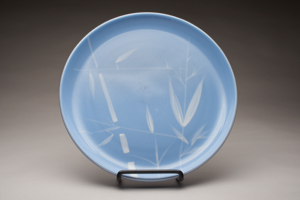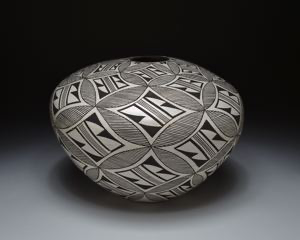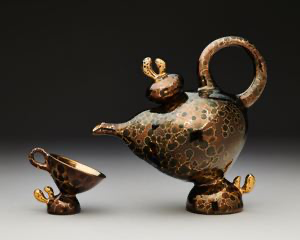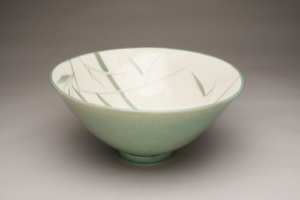| Showing 11 of 309 |
| FILTER RESULTS | × Close |

 by Artist (221)
by Artist (221)
Adaline Kent
1
Adele Chase
1
Adrian Saxe
1
Akio Takamori
1
Alan Bennett
2
Alexander Stirling Calder
1
Alice Cling
1
Alice Martinez
1
Andrea Gill
1
Andrew Watson
1
Angela Baca
1
Annabeth Rosen
1
Annette Corcoran
1
Antonio Prieto
3
Baba Wagué Diakité
1
Ban Kajitani
1
Barbara A. Diduk
1
Bauer Pottery USA
1
Beatrice Wood
1
Bede Clarke
1
Bernard Leach
1
Bertha Tungovia
2
Beth Calengor
1
Betty Woodman
1
Brad Adams
1
Brad Schwieger
1
California Art Tile Company
1
Carol Calabaza
1
Catalina Island Pottery
1
Catharine Hiersoux
1
Charmae Shields Natseway
1
Chris Gustin
1
Christine Federighi
1
Christopher Staley
1
Chuck Hindes
1
Cindy Kolodziejski
1
CJ Jilek
1
Dan Murphy
1
Darlene Nampeyo
1
David Cressey
1
David Dyche
1
David Furman
1
David James Gilhooly
1
David Pendell
1
David Shaner
1
David Zweifel
1
Deanna Tso
1
Debbie Brown
1
Dennise Gackstetter
1
Diane Otte Shaw
1
Dirk Staschke
1
Don Reitz
1
Donald Johns
1
Dora De Larios
2
Dorothy Bearnson
1
Douglas K. Casebeer
1
Douglas Kenney
1
Edna Romero
1
Elaine Coleman
1
Elaine Henry
1
Elena Netherby
1
Elizabeth Enyeart
1
Ellice T. Johnston
1
Erik Gronborg
1
Ernest A. Batchelder
6
Ernie Kim
1
Eunice Navasie Fawn
1
Eunice Prieto
3
Eva Kwong
1
F. Carlton Ball
1
Fannie Nampeyo
3
Faye B. Tso
1
Forrest Lesch-Middelton
1
Frances Senska
1
Frank Boyden
2
Gaell Lindstrom
1
Gail Busch
1
George Ohr
1
Gerald Newcomb
1
Gerry Williams
1
Gertrud Natzler
1
Glen Edwards
1
Glen Lukens
1
Grace Chapella
1
Halcyon Art Pottery
1
Harris Deller
1
Harrison Groutage
1
Harrison McIntosh
2
Harry Reuben Reynolds
1
Henry Mead
1
Herbert H. Sanders
1
Howard Kottler
1
Howard Pierce
1
Jack Troy
1
James F. McKinnell
1
James Lovera
1
James Melchert
1
Jane Grimm
1
Jason Hess
1
Jason Walker
1
Jerry Rothman
1
Jessie C. Garcia
1
Jill Lawley
1
Joan Takayama-Ogawa
1
Joe Davis
1
Joel Edwards
1
John Mason
1
John Neely
6
John Takehara
1
Joseph G. Brown
1
Joy Navasie
2
Juanita Shije
1
Judy Hiramoto
1
Julian Martinez
1
Jun Kaneko
2
Karen Koblitz
1
Karen Massaro
1
Kari Smith
1
Kelvin Yazzie
1
Ken Harju
1
Kenneth Ferguson
1
Kurt Weiser
1
Larry Elsner
5
Laura Andreson
3
Leah Hardy
1
Lesley Baker
1
Louis Marak
1
Louis Reilly
1
Magdalena Suarez Frimkess
2
Maija Grotell
1
Malcolm Mobutu Smith
1
Marguerite Wildenhain
1
Maria Martinez
7
Marie Z. Chino
1
Marilyn Levine
1
Mark Derby
1
Mark Kuzio
1
Mark Pharis
1
Mark Prieto
2
Markus Urbanik
1
Mary Archuleta
1
Mary Juan
1
Mary Law
1
Mary Lindheim
1
Maryann Webster
1
Maurice Grossman
1
Maximiliana Montoya Martinez
2
Mel Fowler
1
Mel Robson
2
Mel Rubin
1
Michael Lucero
1
Nan McKinnell
1
Neil Estrick
1
Nellie Nampeyo
1
Nicholas Bonner
1
Nils Lou
1
Nora Eccles Treadwell Harrison
14
Otto Heino
2
Pacific Pottery
1
Patrick Crabb
1
Patti Warashina
2
Paul Bonifas
1
Paul Soldner
1
Peter Voulkos
2
Philip Cornelius
1
Ralph Bacerra
1
Raymon Elozua
1
Regal China Corporation
1
Richard Bresnahan
1
Richard DeVore
1
Richard Fairbanks
1
Richard Fox
1
Richard Notkin
1
Richard Shaw
1
Rick Dillingham
1
Robert (Boomer) Moore
2
Robert Arneson
1
Robert Bennett
1
Robert C. Turner
1
Robert Johnson
1
Robert Sperry
1
Robert Winokur
1
Ron Meyers
2
Ron Nagle
2
Rose Cabat
3
Rose Gonzales
1
Rose Naranjo
2
Roseville Pottery
1
Rudy Autio
2
Rupert Deese
1
Ruth Duckworth
1
Sam Chung
1
Sandy Simon
1
Shoji Hamada
2
Susan Beiner
1
Susan Harris
1
Susan Peterson
1
Thomas Campbell
1
Tim Mather
1
Todd Burns
1
Todd Hayes
1
Tom Coleman
1
Tony Martin
1
Toshiko Takaezu
1
Unknown
1
Unknown Acoma Pueblo
1
Unknown Ancestral Pueblo
4
Unknown Cochiti Pueblo
2
Unknown Kewa Pueblo
1
Unknown Native American
12
Unknown Zia Pueblo
2
Vickie R. Tortalita
1
Viola Frey
5
Virginia Cartwright
2
Virginia Lowden
1
Von Allen
1
Walter G. Treadwell
1
Walter Ostrom
1
Warren MacKenzie
2
Wayne Higby
1
Winfield Ceramics
4

 by Object Type (43)
by Object Type (43)
Basket
2
Bead
6
Bottle
23
Bottle with stopper
1
Bowl
36
Bowl with lid
2
Box with lid
1
Candle holder
3
Canteen
1
Carafe
4
Casserole dish with lid
1
Compote bowl
1
Cookie jar with lid
1
Cup
5
Drawing
2
Film
2
Honey jar with lid
1
Jar
36
Jar with lid
14
Mug
2
Olla
5
Painting
1
Pitcher
7
Planter
1
Plate
13
Platter
14
Pot
10
Saucer
1
Sculpture
42
Stoneware
1
Tea set
1
Teacup on platform
1
Teapot
23
Teapot with cup and platter
1
Tile
7
Tureen
1
Tureen with lid
1
Urn
3
Vase
19
Vessel
10
Vessel with lid
1
Wedding jar
1
Whistle
1




